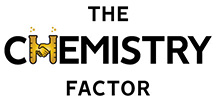Achievement begins with trust in yourself, followed by the trust in those working with you
Personal Excellence Journal: January 2019 www.HR.com
Posted on 01-09-2019, by: Barney Feinberg
I remember working with a Chief Operating Officer in an advertising agency in New York City. He was always complaining that nobody understood how to get the work done without his supervision. His lack of trust had been going on for years, a constant drain to everyone’s energy and enthusiasm.
This COO was driving his people crazy, second-guessing their actions, playing what he called “devil’s advocate.” Some of the company’s best talent would leave while they built a reputation that made it harder to recruit new talent. It cost the company money. Staff retention suffered.
He adopted a pattern of preparing for the worst-case scenario to make sure people that worked for him were equipped to address issues that rarely, if ever, occurred. His people were aware of his lack of trust in them which had them question their actions for fear of reprisal.
Webster’s dictionary defines trust as, “assured reliance on the character, ability, strength, or truth of someone or something. A relationship where confidence is in place.” How often have you seen the lack of faith from one action create distrust in another where trust has no good reason to be questioned?
Values are your rules of conduct, they characterize your sense of self and are elemental to the actions you take. How many values do you have? I believe you have hundreds to choose from, but the one most often used at work is trust. Who can you and who can’t you trust to get the job done?
Trust is a catch-all value used to ensure you reach your goals at work. Trust drives your actions, and it is often on automatic pilot, presenting itself as distrust whenever there is doubt. When the value of trust comes into question, your work activities slow down, out of caution. It is here where you can make circumstances, coworkers, or yourself wrong.
How often do you question trust in someone or some event at work? I think for many, it is so often you are not even aware of it. The lack of trust hinders productivity and is damaging to the success you want to achieve. When overused, it becomes a disease that makes work and people wrong, limiting your greater business achievement.
My COO client came to realize it was his fear of failure, that brought him to question trust continually, reflecting his desire not to make mistakes. It was his expectations for achievement that had him focus on the ineffective idea that he could control all events by always putting trust into question.
In our coaching, he started to understand how much time he was wasting trying to prevent mistakes rather than allowing them to happen and move on. He began to trust in other values that his staff exhibited. They were responsible, would learn from mistakes, and avoid repeating them. This revelation freed everyone to be more confident in their actions, leading to higher staff retention and satisfaction in the agency.
For most of my career, I have worked with creatives both in the fashion and advertising industries. I have found some, who are very talented, to be habitually late for meetings, focused more on the creative side and less the logical side of their brain. They are so engaged in their work that time is no longer linear, and they get lost in their project. Being late can disconnect the person suffering from it, leading that person not to trust other values that the creative might exemplify, such as dedication, creativity, vision, or focus.
I was working with a sweater designer in Hong Kong who was consistently a good hour late to the office every morning. He enjoyed sleeping late at the Regent Hotel, which was a very comfortable home away from home. It was easy for me to see him as lazy and all about himself, not someone who was part of a collaborative team. I made him wrong constantly in my mind, smiling on the outside, churning on the inside as we discussed yarn options and accessories.
I questioned his designing but was always pleased to see the sweaters sold well at retail. I valued his commitment to success. Then we took a trip to China. It was in the early 1980s when there was still much poverty throughout China with little modern convenience. He began to open up to me about how hard it was for him to sleep away from home with the 12-hour time difference and that he missed his family. We built a friendship that made working together a more enjoyable collaboration. He started to show up to our office more punctually, and I was much more empathetic when he was late.
I have seen it countless times where lack of trust for one value negatively affects the trust of other values. The reasoning, “If I can’t trust them to do this why would I trust them to do that.” This logic is unconsciously in the back of our minds; it creates a hesitation that then hurts the relationship.
Making people “wrong,” not trusting your coworker, limits the success of the company to your detriment. Identifying the specific value that is responsible for causing your lack of trust in a coworker, such as timeliness, can limit your lack of trust to that value and prevent blowing trust in the relationship out of proportion, making matters worse.
From my experience working overseas in Asia as the COO of a buying office manufacturing clothing, I recall some of the best factory relationships we developed were built from failure. A factory would occasionally err in production, making a garment that did not meet quality specifications. Most importers would automatically not accept delivery and hold the factory responsible for the goods, which would cost them dearly. Trust on both sides would be diminished.
We took a different approach, instead of placing blame and losing trust, we connected to our and the factory’s value of dedication for improvement.
We brought in the defective goods and sold them off price to support the factory, covering their costs. Then we helped them in correcting the mistakes so as not to repeat them. We built a stronger factory relationship forged from the fire of failure, helping each other’s long-term success. We did not allow the circumstances to dictate our actions, questioning trust, and instead empowered it.
The book I recently published took me over five years to finish. The experience of not publishing my first book, years before, gave me some reason for self-doubt. My close business associates encouraged me to continue, even when, in my mind there was uncertainty. These associates didn’t discourage me to never to fall but instead inspired me to get up every time I did. They put their trust in me, empowering values such as dedication, acknowledgment, and encouragement that emboldened my actions to reach my goal.
Achievement begins with trust in yourself, followed by the trust in those working with you. Dynamic businesses pave the way for innovation by taking a risk to break new ground. Without trust, the risk would make the path to reach their goals much more difficult, and to go beyond them near impossible.
Trust is overrated when we continually question it. When that happens, we forget the values that genuinely inspire our actions. If you are stingy with trust, constantly asking those you work with to prove they should be trusted, you are doing it to the detriment of your success.
Rise-up and experiment with other values that you have in common with the people at work. When your value of trust appears more as a protection to succeed rather than a value to inspire, find other values to empower your relationships. Learn to encourage success from failure, as stories in this article point out. You will make it much easier to achieve success beyond your expectations.
Michelangelo once said, “The greater danger for most of us lies not in setting our aim too high and falling short, but in setting our aim too low and achieving our mark.”
Business is not often a straight line. There will be curves and roadblocks in your quest to reach your goals. If trust drives you to expect the straight line, you are likely not taking enough risk. I recommend you take stock in the values you have in common with your coworkers. Working from common values will make it easier to work together rather than against each other, lack of trust will become the exception, not the rule.
Barney Feinberg is the founder and CEO of The Chemistry Factor, specializing as an executive coach, recruiter, and speaker. He is the author of the recently published book, The Chemistry Factor – Create Powerful Business Relationships for Greater Success. Barney began his career as a CPA learning the language of business and later started a buying office in Asia, becoming the COO. For the last 25 years as a recruiter and 18 years as a certified coach, he has combined his skills to teach executives how to empower their relationships at work for greater success and satisfaction in their career.
Visit www.thechemistryfactor.com
Follow @chemistryfactor

